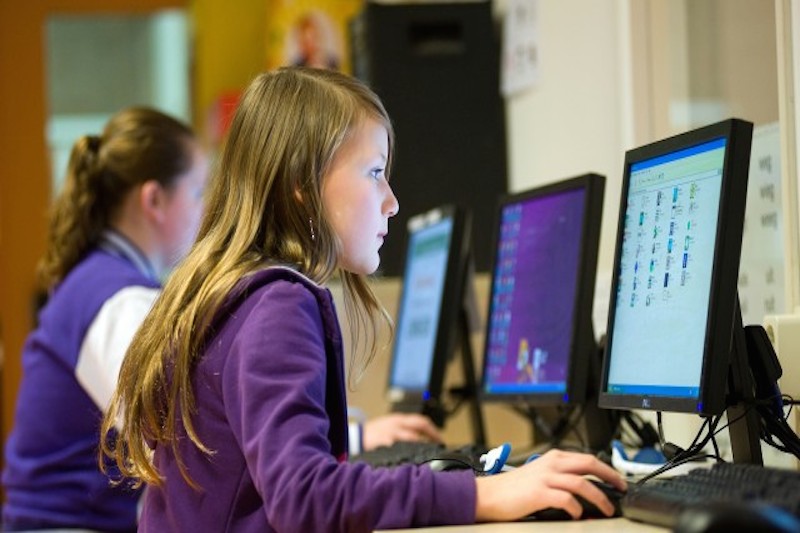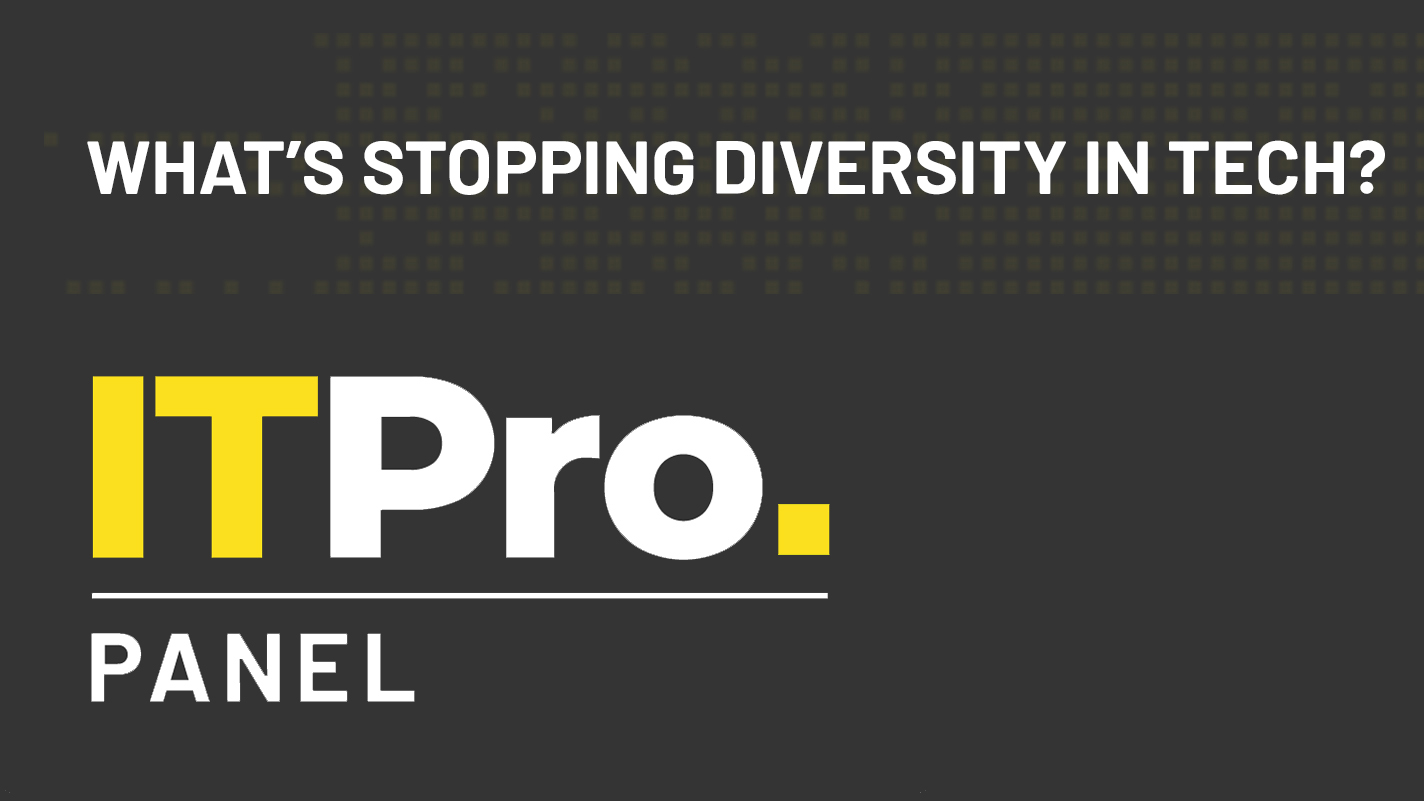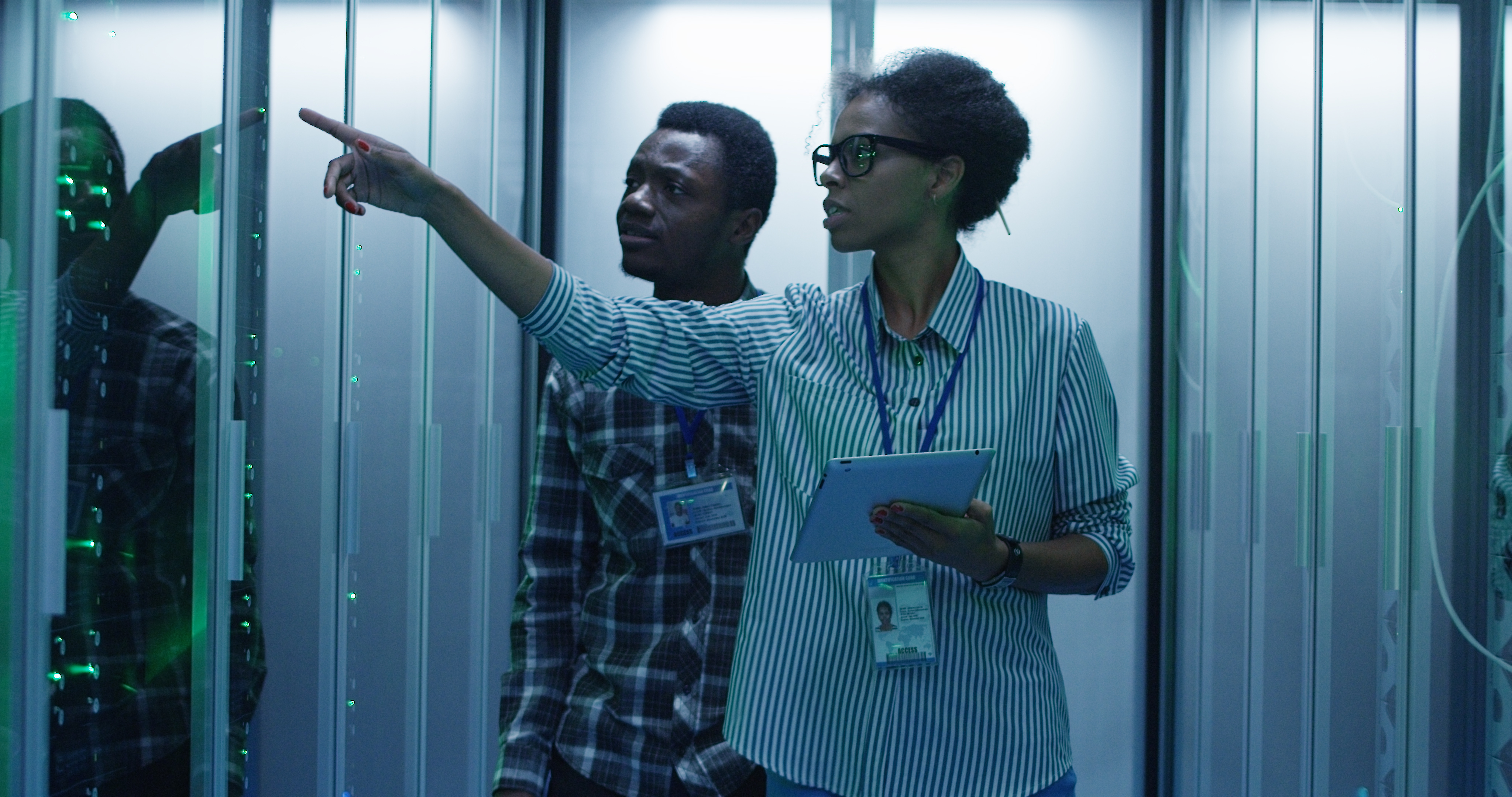Is early years tech education enough to get girls into IT?
Many hope the computing curriculum can help reverse the tech industry's gender gap – but should we be doing more?


Sign up today and you will receive a free copy of our Future Focus 2025 report - the leading guidance on AI, cybersecurity and other IT challenges as per 700+ senior executives
You are now subscribed
Your newsletter sign-up was successful
The tech industry's gender divide is alive and well a quick look at most companies' senior leadership teams is enough to prove that. The problem continues all the way down the corporate hierarchy as well; throughout the business, IT and tech staff are disproportionately male. There are many initiatives aimed at correcting this imbalance by proactively hiring more female tech staff, but the stark truth is that there simply aren't enough women entering the industry.
"At Sophos in the UK over 15% of our engineers are female. It's nowhere near enough, but it's really hard to push that higher when the supply of qualified graduates is so low," explains Sophos' vice president of product management, John Shaw. "Employment of women in the UK tech sector is very low," he goes on, "but this reflects that still only 13% of computer science and IT undergraduates at UK universities are women."
Without a large pool of women taking tech courses at the university level, it's going to be difficult for companies to reverse the current gender imbalance, which means more needs to be done to ensure that girls are interested in tech by the time they reach secondary school and beyond.
In order to help get all kids interested in technology at a younger age which will hopefully tempt them towards tech-based courses and careers - the government implemented a new computing curriculum in 2014, starting at Key Stage 1 with basic principles like creating simple programs and understanding what an algorithm is. This has been widely hailed as a positive step, and one that may go a long way towards shrinking the UK's overall tech skills gap.
Microsoft worked extensively with the government in establishing the computing curriculum, and the company's UK director of education Steve Beswick says one of the key areas where it could have a positive impact is making computer science interesting for kids. "First of all, you've got to engage," he tells IT Pro. "If you make it fun for an 11 year old to start coding, you're going to attract both boys and girls into it and ultimately, we think that will feed the funnel of having more and more people becoming computer scientists."
It will also be an excellent way to give female students a firm bedrock on which to build further training, according to Emily Atkinson, managing director of non-profit organisation DeveloperHer. "With coding on the curriculum in the UK now, more girls will have basic coding skills as they do maths, English and science," she says, adding that "learning to code is not just about learning how to construct syntax, but the problem solving skills behind it."
Eben Upton, founder of the Raspberry Pi Foundation, agrees and says that every child should be taught basic computing skills even if they don't intend to pursue it as a career. "The traditional approach to music in school is quite a good model here," he said. "Some people may stop after covering the fundamentals, some may take it on as a hobby, and others may become professionals, but everyone is enriched by having some exposure to it."
Sign up today and you will receive a free copy of our Future Focus 2025 report - the leading guidance on AI, cybersecurity and other IT challenges as per 700+ senior executives
However, while increasing the level of tech education at early years may increase the number of females studying computer science at university, it may not do much to increase the proportion of women in comparison to men. "Gender doesn't actually tend to be an issue when it comes to tech uptake in early years," says Manchester Digital's managing director Katie Gallagher. "Coding clubs in primary schools tend to be a 50/50 split between male and female and we tend to find that girls are more than happy to get stuck in as much as boys at this age," she adds; "it's aged 11 13 when girls start becoming disengaged with tech."
"We lose girls from Year 8 and Year 9 in schools, due to different socialisation of girls and boys and ingrained ideas about which skills suit particular careers," explains Dr Dana Ruggiero, senior lecturer in learning technology at Bath Spa University (BSU). According to Ruggiero, girls can be put off by the false perception that computing is overly complex. "Along with engineering and chemistry, computing is seen as systematic," she says, "but narrative and communication are as important as mathematics."
In fact, according to experts, learning to code is much closer to learning a language than it is to science or maths-based subjects. "The perception of computing and coding is that it's complicated and maths-heavy, but that's not the case at all," says Emma Klasse, a Creative Computing student at BSU. Despite leaning more towards the arts, she found that a course in computing suited her well.
These misconceptions can often drive potential students away, and they're something Humera Tariq, a systems engineer for TCS and one of the company's Tech Future ambassadors, has been fighting against. "One of the reasons that I'm so passionate about inspiring young people to pursue a career in tech particularly IT is that I want to show them what a rewarding and interesting world they'd be entering into."
This sort of guidance is something young women clearly need, too. Tariq told us that she felt like she had fallen into tech, and that sentiment was surprisingly common throughout many of the women we spoke to. Rather than pursuing technology through education, they often did a more traditionally 'feminine' degree before transitioning to a technical role after something sparked their interest.
WorldRemit's head of product, Alice Newton-Rex, went from studying Classics at Cambridge to doing computer science and economics and for her, it was America's enthusiasm for programming that initially drew her in. "I had not been at all excited by the idea of learning to code and learning technology," she tells IT Pro, "and as soon as I arrived in the US, there was this amazing buzz around it and it was something all the cool kids were doing."
"Everybody wanted to be an entrepreneur, everybody wanted to learn to code, and so it was a really natural step to take while over there, and I just wish we could bring some of that enthusiasm back into the UK education system."
This idea that women come into the tech industry sideways was echoed by Maintel's director of support services Gillian Bailey, who told IT Pro that 70% of the women they employ are originally recruited for non-tech roles. "Perhaps it's taken them working within a tech company to realise that these roles are out there and that they're good at them," she reflects, which raises a good point awareness about what tech roles actually involve could stand to be improved.
Newton-Rex, along with many of the women IT Pro talked to, told us that too much emphasis is put on technology for its own sake, rather than practical outcomes. "The reason I love working in technology and why I wanted to learn to code is because I want to build things," she says.
"I wouldn't say I'm excited about tech per se, but about what you can make with technology, and my hunch is that a lot of women and girls also feel that way, and that one of the places where the education system falls down is in stressing too much the technology itself and not what you can do with it."
Upton, who is something of an expert in getting kids engaged with tech, confirmed this hunch. "We've found that the key to getting large numbers of children involved is to position STEM subjects as a way to help a child do something they care about, rather than assuming that everyone will study these subjects just for their own sake," he says.
"That's why it's so exciting when we see art teachers attending our Picademy teacher training program: there are kids out there who maybe aren't that excited by learning about if' statements in the abstract, but who light up when you show them that you can use a Raspberry Pi and a bit of Python to control an art installation."
Tariq also raises this point, arguing that young people don't know about the types of jobs that are open to them. "Although the understanding of consumer technology amongst young people is the highest it has ever been and it's introduced at such a young age, they don't join the dots between the technology they use on a daily basis and what that means in terms of careers," she says, pointing out that the tech industry is evolving and expanding so quickly that in all likelihood, most of the jobs they will be doing don't even exist yet.
When you talk about working in tech, the first (and often only) job that enters people's mind is that of a programmer, sitting at a terminal rattling off incomprehensible lines of code while muttering about 'boolean deductibles' and 'javabase frameworks'. However, that's only a small part of any tech company, and there are roles in areas like product design, network administration and security that don't require a single line of code.
In fact, Iron Group CEO Anne de Kerckhove suggests that focusing too extensively on programming could even prove detrimental to young girls. "I learned to code as an undergraduate and I was terrible at it," she said. "You don't need to code to run or manage a tech business. You need to have a deep affinity with innovation and an ability to get things done. Women have both in spades."
Another issue is the fact that boys have a much higher number of role models with the tech industry that girls do. The history of Silicon Valley is overwhelmingly male, and while aspiring male engineers have heroes like Mark Zuckerberg, Steve Jobs or Bill Gates to look up to, young women who want to pursue similar careers are presented with far fewer mainstream female successes.
There are notable successes, of course; Ada Lovelace is considered not only the first female programmer, but the first programmer ever, and Margaret Hamilton famously wrote so much code for the Apollo space program that the hard copy was as tall as she was. "It's incredible that there's a lingering perception in the culture that programming is a boys club when women's contributions have been central to the practice of software engineering since the days of ENIAC," Upton tells IT Pro.
These women are rightly hailed as heroes and held up as examples to young girls, but a bigger effort needs to be made to ensure that women are presented with as many positive female role models as possible. "It's a no brainer," said Gallagher; "it's absolutely the way to engage young females. They need aspirational figures to look up to, and this needs enforcing in careers advice, too."
In addition to emphasising the historical achievements of women in tech, another way that companies and non-profits are trying to encourage more girls into the field is by surrounding them with real-life examples. Numerous groups do this through mentorship programmes, advocacy and code camps or hackathons for young women.
"While tech has perceptibly fewer women at the moment, we should be highlighting those who are working in the industry with hope to inspire the next generation," Atkinson says. Sophos' John Shaw agrees, and mentions how important grassroots activism is. "At Sophos we ran a very popular Girls in Computing' day last year to encourage local girls to get involved, and we plan to repeat it again this year," he explains. "We all need to be doing more to provide examples to counter the prevailing stereotypes."
When looking at ways to introduce more girls to a career in tech, it's obvious that education needs to play a vital role, particularly in early years. If we instil in them an interest and enthusiasm for computing at a young age, they can go on to develop it in later life.
However, it's equally apparent that we can't let it end there. We must support and foster their passion, showing young women that the IT industry isn't just a boy's club and enlightening them to the many successful, respected women performing diverse and rewarding roles across the whole spectrum of tech jobs because if we don't, who will?
Adam Shepherd has been a technology journalist since 2015, covering everything from cloud storage and security, to smartphones and servers. Over the course of his career, he’s seen the spread of 5G, the growing ubiquity of wireless devices, and the start of the connected revolution. He’s also been to more trade shows and technology conferences than he cares to count.
Adam is an avid follower of the latest hardware innovations, and he is never happier than when tinkering with complex network configurations, or exploring a new Linux distro. He was also previously a co-host on the ITPro Podcast, where he was often found ranting about his love of strange gadgets, his disdain for Windows Mobile, and everything in between.
You can find Adam tweeting about enterprise technology (or more often bad jokes) @AdamShepherUK.
-
 AWS CEO Matt Garman isn’t convinced AI spells the end of the software industry
AWS CEO Matt Garman isn’t convinced AI spells the end of the software industryNews Software stocks have taken a beating in recent weeks, but AWS CEO Matt Garman has joined Nvidia's Jensen Huang and Databricks CEO Ali Ghodsi in pouring cold water on the AI-fueled hysteria.
-
 Deepfake business risks are growing
Deepfake business risks are growingIn-depth As the risk of being targeted by deepfakes increases, what should businesses be looking out for?
-
 Young women are keen on pursuing STEM careers, but they’re still facing huge barriers
Young women are keen on pursuing STEM careers, but they’re still facing huge barriersNews From fears that STEM courses will be too demanding to concerns about family responsibilities, women aren't taking up training they'd actually like to do
-
 It’s the end of the road for Women Who Code, following loss of “critical” funding
It’s the end of the road for Women Who Code, following loss of “critical” fundingNews The organization supporting women in the tech industry is being dissolved 13 years after it was founded
-
 Five common barriers holding back women in tech
Five common barriers holding back women in techWomen in tech still face significant challenges in the workplace
-
 Report: Brexit and COVID to blame for lack of diversity in tech
Report: Brexit and COVID to blame for lack of diversity in techNews One in two surveyed respondents cited the two events as key factors in the failure to improve diversity in leadership roles
-
 Australia allocates $6.7 million to advance women in STEM initiatives
Australia allocates $6.7 million to advance women in STEM initiativesNews Women make up only 28% of the country's STEM workers
-
 IT Pro Panel: What’s stopping diversity in tech?
IT Pro Panel: What’s stopping diversity in tech?IT Pro Panel The need for more diversity is well established - but we still have a way to go
-
 AWS partners with NPower to boost jobs for women of color in tech
AWS partners with NPower to boost jobs for women of color in techNews Command Shift will find tech jobs for underserved group
-
 AWS and The Dream Collective aim to bring more women into tech
AWS and The Dream Collective aim to bring more women into techNews The SheDares learning program offers women expert advice on how to pursue a career in technology
